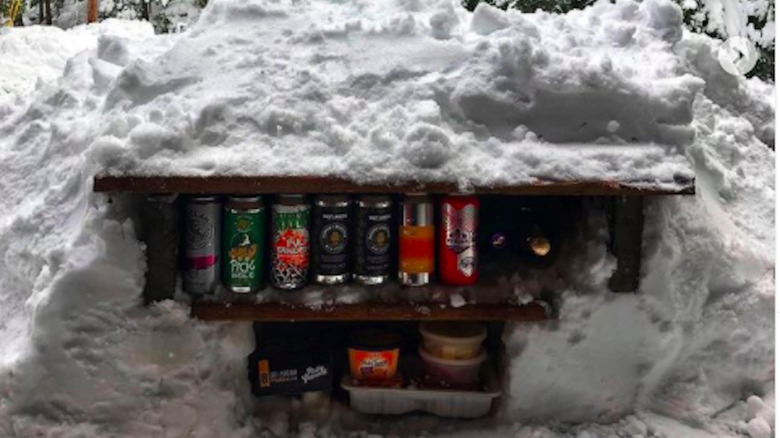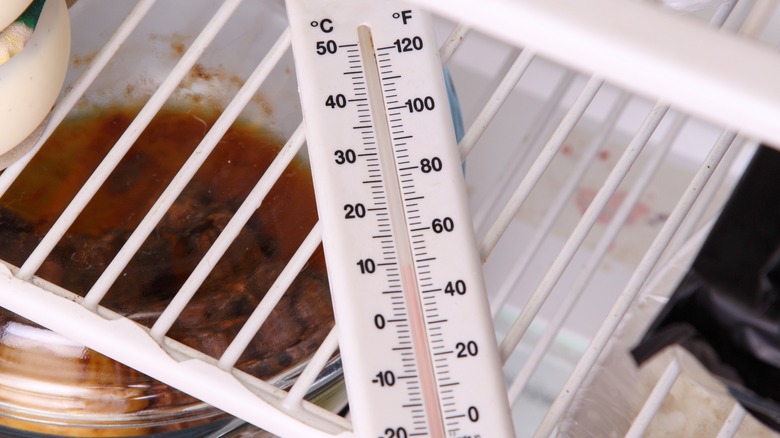Why You Should Never Store Your Food In The Snow
Every winter, social media is flooded with hilarious videos and pictures of people opening up their front doors to a wall of snow several feet high, and pulling out an ice-cold beer, or, in some cases, things like milk, or even prepared food. When the power goes out, this may seem like a logical choice — to keep food from spoiling if the temperature inside the refrigerator isn't maintained.
But the Kansas State University Research and Extension offered an alternative: "An unopened refrigerator will stay cold about four hours; a full freezer will hold temperature for about 48 hours." But if the refrigerator isn't an option, is just tossing everything into the frozen snow really your best and safest bet? Unfortunately, no. Things can get unsafe pretty quickly. In terms of food safety, the temperature range where food can grow potentially harmful bacteria is between 40 and 140 degrees Fahrenheit, according to the USDA. This range is often referred to as "the danger zone." Food left between these temperatures for as little as one hour can grow deadly bacteria such as Salmonella, E.Coli, and Campylobacter, to name a few, with colonies doubling in just 20 minutes.
Food can be at a temperature that is unsafe
Even if the temperature outside is below 40 degrees, that doesn't necessarily mean that food is guaranteed to stay out of the danger zone. As Food and Wine reports, "The sun's rays can thaw food even when the air is freezing cold. Outside temperatures can vary hour by hour, potentially more than can be safe for your food. And, of course, perishable items could be exposed to unsanitary conditions or to animals [which] may harbor bacteria or disease."
An alternate solution for when keeping everything sealed in the fridge isn't an option or if it's been more than 4 hours: ice. Insulated "ice boxes" were used to harness the power of ice to keep food cold before electric refrigerators. If you have access to bags of ice or homemade ice, it might be your saving grace. Filling your fridge with ice and keeping it closed as much as possible is a much safer way to prevent spoilage (via FoodSafetey.gov.) And, make sure to follow this advice from The Takeout: "Once your power is restored, it's important to check all your food to make sure it's still safe to eat."

